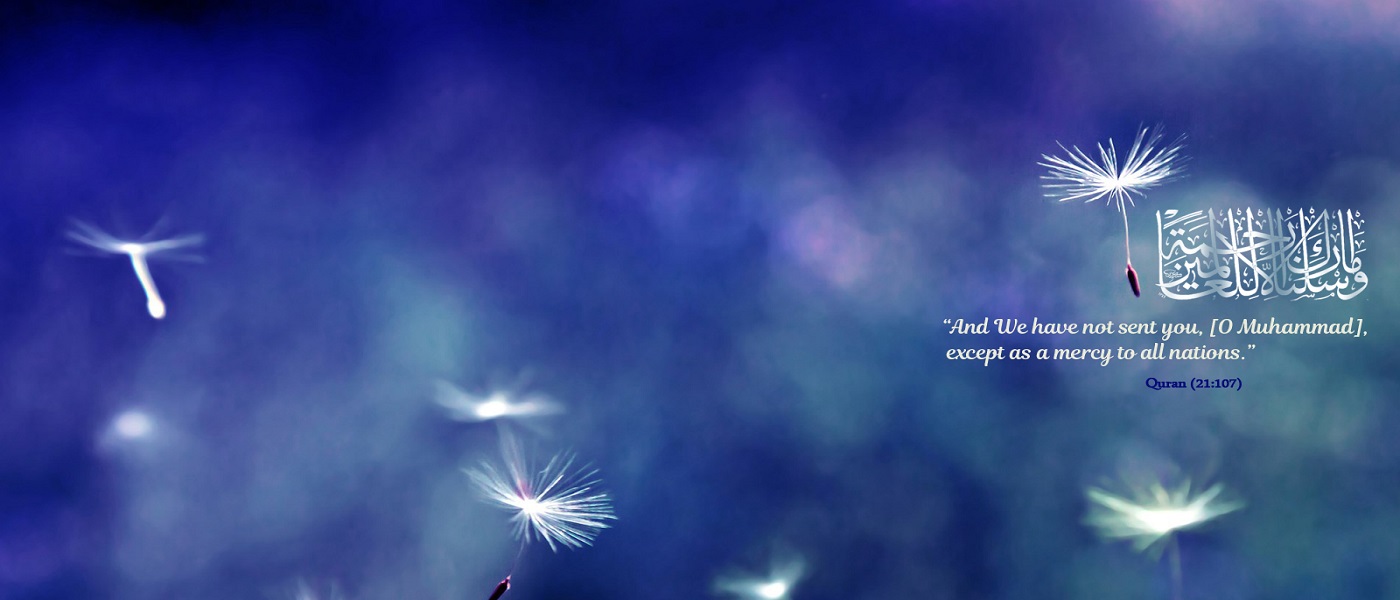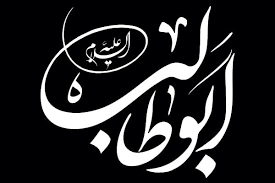

A Glimpse at the Best Traits of Prophet Muhammad (PBUH&HP)
“I have not been sent except to elevate the morality” [1] Morality is such an invaluable asset for humans in this worldly life and the Hereafter that Prophet Muhammad (PBUH&HP) has introduced it as the only goal of his prophetic mission. It is also noticeable in the following verse of the Quran that Prophets were sent by Allah to improve humanity:
“Allah certainly favored the faithful when He raised up among them an apostle from among themselves to recite to them His signs and to purify them and teach them the Book and wisdom, and earlier they had indeed been in manifest error” (3:164)
Moreover, humans naturally seek and look up to role models who have successfully personified all the perfect qualities. One of the shining examples of such models to follow is undoubtedly the last Messenger of God, Muhammad (PBUH&HP) who possesses all the best personality traits:
“and indeed you possess a great character” (68:4)
“There is certainly a good exemplar for you in the Apostle of Allah (i.e., Muhammad (PBUH&HP))” (33:21)
Let’s have a glimpse at some of his most prominent characteristics in this short article:
1. Honesty
Prophet Muhammad’s (PBUH&HP) truthfulness and honesty were so famous among his most noble attributes, from his tender age and before he was chosen as the Messenger of God, that the people of that time would call him al-Amin (the trustworthy).
This characteristic of his reached the extent that almost everyone in Mecca would put their money, valuables, and savings in the hands of Prophet (PBUH&HP) for safekeeping. Even, after he was called for prophethood, despite all their hostility to him, the Quraysh[i] continued depositing their treasure with him.
2. Simple living
In spite of all his responsibilities as a prophet, Muhammad (PBUH&HP) would do all his chores himself as well as helping his family with the household work; he used to patch his clothes, mend his shoes, and milk his goat with his own hands. He would eat simple food, wear simple clothes and travel in a simple manner.
It is not that he could not afford a luxurious lifestyle; there were stages in the prophet’s (PBUH&HP) life when he had a reasonable income from his trading. In fact, he chose to lead a simple life. He preferred to live on what was sufficient and as normally as any other simple Muslim. When he acquired great wealth, he did not hold on to it for himself. Instead, he gave it to the poor and spent it for the good of society.
3. Regularity and Cleanliness
Prophet Muhammad (PBUH&HP) showed great orderliness in all aspects of his life, from his personal matters to all social, political, and economic affairs. He paid attention to his appearance, and was much fond of using perfume and spent so much money on that; he also encouraged his followers to do the same and to keep their bodies and houses clean.
One of the high values taught by the prophet (PBUH) was regarding the importance of time. He urged people to choose the right moment for carrying out specific activities; he would divide his day into three parts, one for saying prayers to God, one for his family, and a portion for himself, which he would share with people. He has mentioned in a narration about self-discipline that “God loves it if any of you does a job, he/she does it perfectly” [2].
4. Kindness
In his social life as well as his family life, prophet Muhammad (PBUH&HP) was always kind, affectionate, and respectful to people. He was known to have a pleasant smile on his face which never faded away. He took the lead to extend greetings to those he knew and those he did not know, including children and slaves.
The holy prophet (PBUH&HP) also showed significant love and tenderness to children; he seated them on his lap, put them on his shoulders, and kissed them. He was incredibly kind to his slaves too. He told people that the slaves were their brothers. He took a great interest in the welfare of all people, had great compassion for people in trouble, and would do his best to remove their sufferings [3].
5. Respect for women
Women in pre-Islamic Arabia would face nothing but neglect from society; all their personal and societal rights were disregarded to the extent that killing and burying female infants alive was a prevalent practice among them. But Islam, from its very beginning, recognized the importance of women and considered the lives of both men and women to be precious.
Prophet Muhammad (PBUH&HP) commanded others to fulfill women's rights and to honor their individuality, and he showed a particular form of respect towards women himself while implementing these principles. An example of his respect towards women is his being helpful to his wives. He has said in this regard: “Beware, the best of you is he who is the best towards his women, and I am the best among all of you toward my women” [4].
Along with these few traits, he possessed so many other significant characteristics that anybody wishes to attain. His life was full of examples of perseverance, modesty, generosity, piety, love, mercy, forbearance, bravery, and many many other ones. Admittedly, that’s why God and His angels bless our Holy Prophet (PBUH&HP):
“Indeed Allah and His angels bless the Prophet; O you who have faith! Invoke blessings on him and invoke Peace upon him in a worthy manner” (33:56)
Notes:
[i] A powerful merchant tribe that controlled Mecca and its Kaaba and that according to Islamic tradition descended from Ishmael. Prophet Muhammad (PBUH) was born into the Banu Hashim clan of the Quraysh tribe.
Reference:
- Shaykh Ali Namazi, Mustadrak Safinat al-Bihar, volume 1, page 410
- kanz ul amal: 9128
- the last prophet
- prophet Muhammad (PBUH&HP)
- who is Prophet Muhammad
Share This Article

20 Inspiring Jesus Christ (PBUH) Quotes
1. The World in Jesus Christ (PBUH)'s View
This world is a bridge, pass it and don't get attached.
Sheikh al-Mufid, Al-Amali, p.43.
2. You Reap What You Sow
Everyone is after the reward [that comes at the end], and no one will get it except through hard work.
Mizan al-Hikma, hadith no. 22083.
3. The Lasting Lights
Good for the ones who pray at the heart of the night; those are the ones who will inherit a lasting light.
Tuhaf al-Uqul, p.510.
4. Faithfulness in Jesus Christ (PBUH)'s View
A tree is perfected only through giving fruit, as faithfulness is only accomplished through avoiding what is forbidden (Haram).
Tuhaf al-Uqul, p.511.
5. Beware of Your Eyes
Be careful about what you are looking at since the mere act of looking [at something inappropriate] will put the seed of desire in your heart, which would later turn into a disaster.
Tuhaf al-Uqul, p.502.
6. Most Cherished Ones
Good for the ones who make amends among people; those are the most cherished on the Day of Judgement.
Tuhaf al-Uqul, p.501.
7. Servants of This World
O' servants of the world! You are like a lamp that gives light to people and burns itself instead.
Tuhaf al-Uqul, Hadith no.500324.
8. Modesty in Private and Public
As you present modesty and humbleness among people in public, be modest and humble with regard to God in private.
Tuhaf al-Uqul, Hadith no.500325.
9. A Fruitful Heart in Jesus Christ (PBUH)'s View
Verily, planting is only possible on arable land, not a barren one. Similarly, wisdom only grows in a humble and ready heart, not an arrogant and prejudiced one.
Tuhaf al-Uqul, Hadith no.500332.
10. Practice Makes Perfect
Everyone looks upon the stars, but none finds his/her way using them, except the one who knows their places and how they work. Similarly, you will learn wisdom, but only the one who practices wisdom will be guided.
Tuhaf al-Uqul, Hadith no.500336.
11. Inappropriate Words' Echoes
Any offensive and inappropriate word that you say today will be responded later on the Day of Judgement.
Tuhaf al-Uqul, Hadith no.500341.
12. Patience in Jesus Christ (PBUH)'s Words
Water puts the fire out, just as patience calms anger down.
Tuhaf al-Uqul, Hadith no.500347.
13. Perfect Faith as Jesus Christ (PBUH) Describes
Water and soil are the determining factors for a good harvest, just as knowledge and manner are the keys to perfect faith.
Tuhaf al-Uqul, Hadith no.500350.
14. Don't Be Just After this World
The one who is only after this world is like a person drinking seawater; the more he drinks, the more he gets thirsty and finally will bring him death.
Warram b. Abi Firas al-Hilli, Tanbih al-khawatir wa nuzhat al-nawazir, vol.1, p.149.
15. This World and The World that Is to Come
Jesus Christ (PBUH) said to the apostles: "As much as you get tired in this world, you will rest in the other world, and as much as you rest in this world, you'll get exhausted on the world that is to come."
Ismaiil Jawuhari Farabi, Al-Sahah, vol.1, p.225.
16. The Root of All Evil
Beware that the root of all evil lies in loving this world extremely.
Warram b. Abi Firas al-Hilli, Tanbih al-khawatir wa nuzhat al-nawazir, vol.1, p.129.
17. Water and Fire
Loving this world and striving for the other world cannot come together in a believer's heart, as water and fire cannot be put together on a plate.
Warram b. Abi Firas al-Hilli, Tanbih al-khawatir wa nuzhat al-nawazir, vol.1, p.131.
18. God's Friends
If you want to be among God's friends and chosen ones, be kind to the one who does you wrong, and forgive the one who has done you an injustice, and greet the one who turns his face from you.
Tuhaf al-Uqul, p.503.
19. A Magnificent Person
Whoever knows and brings what he knows into practice and teaches others, is considered a magnificent person in Allah's regard.
Warram b. Abi Firas al-Hilli, Tanbih al-khawatir wa nuzhat al-nawazir, vol.1, p.82.
20. The Most Wretched One
The most wretched among you is the one who is only known by his/her knowledge, not his/her deeds.
Bihar al-Anvar, vol.2, p.52.
Read More
AbuTalib
AbuTalib is the holy Prophet’s (PBUH & HP) uncle. His original name was “Imran,” and his father was “Abd al-Muttalib.” Abu-Talib was Imam Ali’s (AS) father.
Abu-Talib is one of the most important men in the history of Islam. His help to the Prophet (PBUH & HP) made Islam what it is and he made many efforts to make Islam get successful in Mecca. He was the most important supporter of the Prophet (PBUH & HP), and of course, he was one of the first individuals who believed in the Prophet.
Guardianship
The holy Prophet (PBUH & HP) lost his father, Abdullah, before he was born, and he also lost his mother when he was only 5 years old. After that, his grandfather, Abd al-Muttalib, was the guardian of the Prophet. Unfortunately, he also lost his grandfather when he was 8 years old. Abd al-Muttalib asked his son, Abu-Talib, to take care of the Prophet (PBUH & HP) and be his guardian. Then, the Prophet (PBUH & HP) lived with Abu-Talib, and he raised the Prophet (PBUH & HP). (1)
The attributes of AbuTalib
Abu-Talib was a merchant who was in charge of serving the Hajj pilgrims and looking after them in Mecca. These responsibilities were of considerable importance in Mecca, and consequently, Abu-Talib was highly respected there. He wasn’t so rich but because of his father, his job in Mecca, and his age, Abu-Talib was one of the most important and respected men in Mecca. Regarding his father, Imam Ali (AS) said
“My father was a respected poor person and there was no respected poor person before him.” (2)
He was a poor man who was generous. He provided food for impoverished people when no one else did. (3)
Supporting the Prophet
Abu-Talib was one of the most important supporters of the Prophet (PBUH & HP) in Mecca. He negotiated with the elders of Quraysh (the people of Mecca) so that they stop teasing the Prophet (PBUH & HP) and his followers. The elders of Quraysh wouldn’t dare to kill the Prophet (PBUH & HP) because Abu-Talib was with him and his support would have had serious repercussions for them. If they had dangerous plans for the Prophet (PBUH & HP), he would gather them to talk with them so that he could dissuade them and save the Messenger’s (PBUH & HP) life. (4)
When the Quraysh banished the Prophet (PBUH & HP) and his followers from Mecca, Abu-Talib let them live in Shi’b of Abi-Talib (a valley named Abu-Talib). He loved the Prophet (PBUH & HP) so much that he ordered his son, Imam Ali (AS), to sleep in the Prophet’s bed at night as the Polytheists were trying to murder the Prophet. Actually, he was ready to even sacrifice his children to save the Messenger’s (PBUH & HP) life. (5)
Faith of AbuTalib
One of the most controversial issues that have led to many discussions between Shias and Sunnis is the faith of Abu-Talib. Sunni scholars believe that Abu-Talib helped the Prophet (PBUH & HP) in many ways not due to his faith but because of his relationship with the Prophet (PBUH & HP). They believe that Abu-Talib was a polytheist until his death, and he is now in Hell, but he is punished less than others.
On the other hand, Shiite scholars believe that Abu-Talib was one of the most faithful Muslims but he concealed his faith from the other Arabs so that he could retain his influence on them and help the Prophet (PBUH & HP) in this way. Shiite scholars say that so many poems written by Abu-Talib reflect the fact that he was a faithful person. Some of his poems are mentioned below:
Don’t you know that we have found Muhammad a Prophet just like Moses that his name has been written in the holy books?
Don’t you know that people love him and no one is better than the one that has been given love by God? (6)
Don’t you know that we do not deny our son? (The Messenger) and he doesn’t care about false words?
He is a person with a white face that the clouds rain because of him and he is a supporter of orphans and the shelter of the poor. (7)

AbuTalib in Hadiths
The Shiite Imams also have claimed that Abu-Talib was a faithful person. Imam Ali (AS) said
“I swear to Allah that my father never worshiped an idol and neither did my grandfather, Hashim, or Abdi-Manaf (the ancestors of the Prophet).” (8)
Imam Baqir (AS) also said
“If the faith of Abu-Talib was put on one side of a balance and the faith of the other people on the other side, the faith of Abu-Talib would be heavier.” (9)
Death of AbuTalib
Abu-Talib died on Rajab 26th, ten years after the Prophet (PBUH & HP) was chosen by Allah. After his death, the Prophet (PBUH & HP) lost one of his most important supporters and because of that he was forced to migrate to Medina. The Prophet (PBUH & HP) was so sad because of that he named that year “The Year of Sorrow”. (10)
Resources
- Sirah ibn Hisham, AbdulMalik ibn Hisham, vol.1, pg.164
- Tarikh al-Yaqubi, Ahmad ibn Abi-Yaqub, vol.2, pg.14
- Ansab al-Ashraf, al-Balazori, vol.2, pg.23
- Sirah ibn Hisham, AbdulMalik ibn Hisham, vol.1, pg.242
- Bihar al-Anvar, Allamah al-Majlesi, vol.35, pg.93
- Sirah ibn Hisham, AbdulMalik ibn Hisham, vol.2, pg.4
- Al-Fosul al-Mukhtarah, Sheikh Mufid, pg.283
- Kamal ad-Din, Sheikh Saduq, vol.1, pg.174&175
- Sharh Nahj al-Balaqa, Ibn Aba al-Hadid, vol.14, pg.68
- Imtah al-Asma, Miqrizi, vol.1, pg.45
Read More

